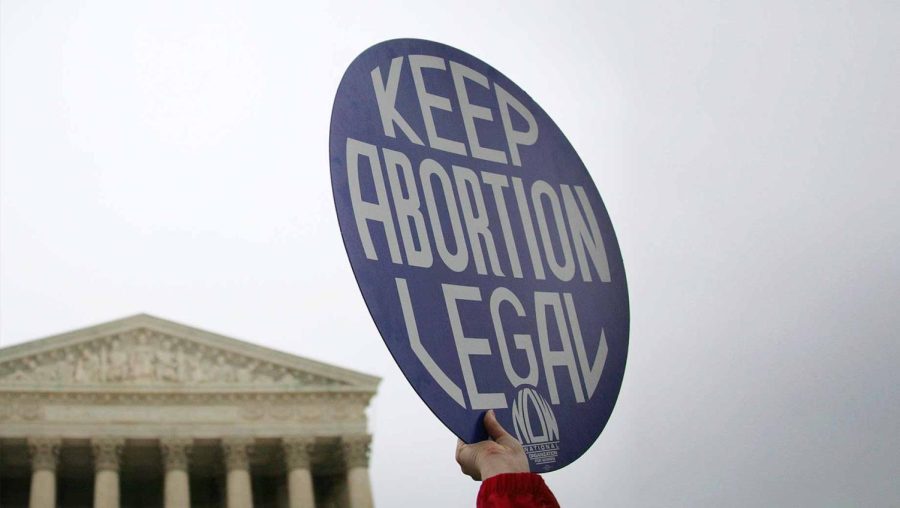Why Even “Pro-Lifers” Should Not Support Overturning Roe V. Wade
If you read the Constitution of the United States, you’ll notice that it is incredibly vague; this is actually by design. In Thomas Jefferson’s own words, he referred to the Constitution as a “living document” because he and the other Founding Fathers wrote it with the ability to be easily amended. They understood that our country would change and evolve throughout time. Due to this evolution, our country would deal with issues across history that our Founding Fathers couldn’t have possibly comprehended enough to create legislation on, due to the fact that they cannot and did not live forever nor predict the future. Therefore, the Constitution was deliberately crafted as broad and flexible to accommodate social and technological changes over time.
Due to the vagueness of the Constitution, the people of the United States of America have implied rights, sometimes called unenumerated rights, which are protected by the Ninth Amendment. Implied rights are defined by Cornell Law as “the political and civil freedoms that necessarily underlie the actual words of the Constitution but are not themselves expressly stated directly in the Constitution, yet are considered essential to American life regardless.” In short, these are rights that aren’t explicitly written in the Constitution, however, they are consistent with parts of the Constitution that are explicit, so therefore it is reasonable to infer that they are constitutional rights. An example of an implied right is the right to an abortion, which is consistent with the Fourteenth Amendment, the right to privacy. According to Roe v. Wade, the right to an abortion falls under the right to privacy.
The Republican Party, or the GOP, has claimed that implied rights are not constitutional because they aren’t explicitly written in the Constitution by the Founding Fathers. To quote the leaked SCOTUS document that would strike down Roe v. Wade: “the Constitution makes no reference to abortion and no such right is implicitly protected by any constitutional provision.”
This reasoning is not in line with, and in fact, is contradictory to the Constitution. The Founding Fathers directly implied that the American government can instill laws that aren’t explicitly written in the Constitution as long as they are consistent with rights that are explicit. The text of the Constitution does not give federal courts, including the Supreme Court, the power of judicial review, but yet the power to deem laws uconstitutional has been deemed an implied power, by the Supreme Court itself under Marbury v. Madison. Why do some rights have to be explicitly stated in the Constitution, while others do not?
Regardless of its validity, this reasoning is dangerous, as it does not only attack the implied right to an abortion. It attacks all implied rights. If instituted by the Supreme Court, anyone could take this exact reasoning outlined in this draft and successfully apply it to striking down any implied right that many Americans enjoy today. What are some examples of implied rights thatcould very well be under attack? Marriage rights. The right to marry whomever you want without government intervention. Homosexual marriage, interracial marriage, interreligious marriages, and disabled marriage could all be under attack. HIPAA is also an implicit right. With this law, your doctor is no longer legally obligated to keep your medical history private. For example, it would be legal for your doctor to fully publish your medical decisions on the internet if they choose to. They would virtually face no legal repercussions for doing so. Another is the right to choose your education. The right to homeschool or attend a religious private school instead of public school is also an implied right. With this draft’s reasoning, your state might no longer allow you to send your child to a religious private school or homeschool them. They could instead force you to send your child to public school. That one might hit very close to home to many of us attending Ramaz, a religious private school. The right to choose your healthcare could also be under attack. Republicans often say they don’t support universal healthcare because they “don’t want the government making medical decisions for them,” yet Republicans often don’t support abortion rights. All of these items listed are implied rights under the right to privacy, guaranteed by the Fourteenth Amendment. All of these rights have the exact same backing as the right to an abortion, and therefore are also under attack of being striken down by this new ruling. If you think this issue doesn’t affect you for whatever reason, it does.
America does not offer universal health care or free childcare. The country has one of the most expensive higher education systems in the world, where the average student debt is $32,000, and the total student debt is $1.75 Trillion. 46 million Americans suffer student loan debts. There are no free contraceptives, paid family leave, or mandatory sexual education in schools. Unemployment, poverty, homelessness, and a failing foster care system with high abuse rates are all problems that need to be addressed in America. Children die in churches, mosques, synagogues, grocery stores, malls, schools, and even in their own homes due to unregulated assault rifle sales to civilians. In 2020 alone, over 19,000 people were murdered by a gun or other firearm in the U.S. America has the highest maternal and infant mortality rate out of any other first world country. 50% of American teen mothers don’t graduate high school and 2% don’t earn their college degrees by their 30s. Only 31% of single mothers have a college degree. Additionally 8/10 teen fathers don’t marry the mother of their child and 66% of families begun by young, single mothers are below the poverty line. Not to mention the fact that America is also currently facing a severe baby formula shortage.
With these statistics in mind, it is incredibly hypocritical, and dangerous for the Republican party to remove abortion as a fundamental constitutional right. Even more so, to call themselves “pro-life.” How can one possibly call yourself pro-life when this country makes it almost impossible to raise children, and virtually nothing is done to stop it. Many of the issues stated above are ignored by legislators. So-called “pro-lifers” cannot strip Americans of the solution when they created the problem. With all of this in mind, if you still support the overturning of Roe v. Wade under that guise that you are “preserving life,” I urge you to consider these elements the next time you condemn abortion. It should not be a quick assessment to make.




